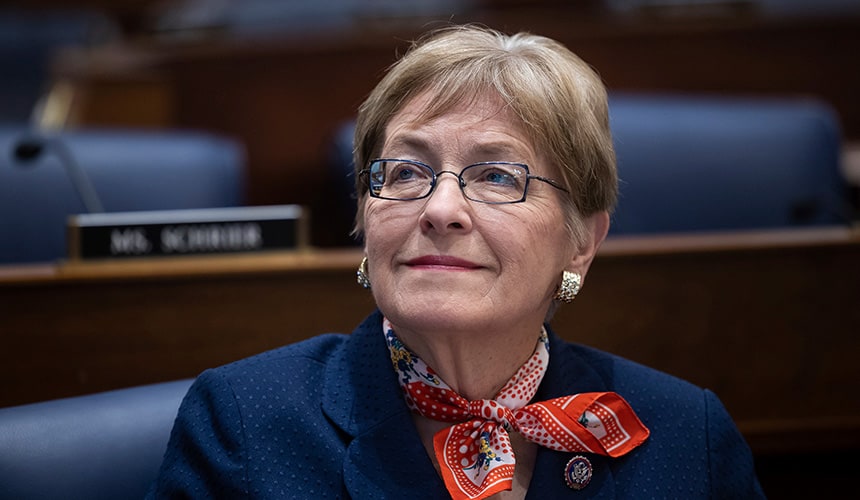
Making History
When Marcy Kaptur left her home in Toledo to attend the University of Wisconsin, she meant to study history. Over the following decades, she ended up making it. The first member of her family to attend college, she’s now about to become the longest-tenured woman in the history of the U.S. Congress, having represented her Ohio district for four decades.
And her path started with an open door at the UW.
While growing up in Toledo, Kaptur knew she wanted to make a mark. But the first schools she looked at turned her away because of her sex: in the 1960s, both Notre Dame University and the U.S. Air Force Academy admitted only men. So, following the advice of a friend, she applied to the UW instead.
“I was working in a library in Toledo,” she says, “and one of the women I worked with, her husband had been stationed in Madison during the war. I was interested in studying history, and I had looked through all the catalogs in the library to figure out which were the best schools in America to study history. Wisconsin was in the top 10. It was the only school that I applied to, and they accepted me with a scholarship.”
After arriving on campus, Kaptur says she bloomed. She entered the UW’s integrated liberal studies (ILS) program, learning history from professors like Donald Carlisle PhD1950, physics from Aaron Ihde BA1931, MS1939, PhD1941, and economics from Harold Groves. Though the ILS program provided a broad-based education in the humanities, it also gave Kaptur a practical view of the problems that American cities faced.
“It was the civil rights era, and the Vietnam War was going on,” she says. “Our professors took us to Newark, New Jersey, which had burned to the ground in the heart of the city. And I was trying to figure out how to put all this history to work in the modern era and how to make my life relevant in my own time and generation. Those trips really helped direct me.”
After graduating, Kaptur returned to Toledo and began working in urban planning and policy.
During eight years on the county planning commission, she found an interest in real estate and finance, looking for ways that policy can help people improve their economic situation. “One of my proudest achievements,” she says, “is inspiring community development credit unions in places that were red-lined and their capital has been short.”
Kaptur earned a master’s degree in urban planning from Michigan and began doctoral work at the Massachusetts Institute of Technology. But in 1982, she ran for Congress, and she defeated Republican Ed Weber. It was the first of 20 consecutive congressional elections Kaptur has won, making her Ohio’s longest-serving representative.
In Congress, Kaptur continues to project the lessons she learned at the UW. Inspired by her history courses, she championed the effort to create the World War II Memorial. Inspired by environmental classes and the limnological studies of Lake Mendota, she chaired the Great Lakes Task Force. Lessons in botany inspired her to look into agriculture and soil depletion.
“I feel I’m at the edge of creating change for the country on so many levels, and Wisconsin prepared me,” she says. “I believe that one of the biggest problems in Congress is most people haven’t graduated from the University of Wisconsin’s integrated liberal studies program.”
 51° F
51° F